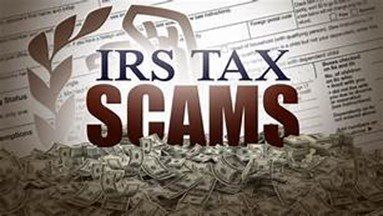Linart Business Services, Inc.
Linda Stegman, Enrolled Agent
Blog
Welcome to our Company Blog...Enjoy!

By Linda Stegman
•
16 Aug, 2021
Every year the IRS mails letters or notices to taxpayers for many different reasons. Typically, it’s about a specific issue with a taxpayer’s federal tax return or tax account. A notice may tell them about changes to their account or ask for more information. It could also tell them they need to make a payment. This year, people might have also received correspondence about Economic Impact Payments or an advance child tax credit outreach letter. Here are some do's and don'ts for anyone who receives mail from the IRS: • Don't ignore it. Most IRS letters and notices are about federal tax returns or tax accounts. Each notice deals with a specific issue and includes specific instructions on what to do • Don’t throw it away. Taxpayers should keep notices or letters they receive from the IRS. These include adjustment notices when an action is taken on the taxpayer's account, Economic Impact Payment notices, and letters about advance payments of the 2021 child tax credit. They may need to refer to these when filing their 2021 tax return in 2022. In general, the IRS suggests that taxpayers keep records for three years from the date they filed the tax return. • Don't panic. The IRS and its authorized private collection agencies do send letters by mail. Most of the time, all the taxpayer needs to do is read the letter carefully and take the appropriate action. • Don't reply unless instructed to do so. There is usually no need for a taxpayer to reply to a notice unless specifically instructed to do so. On the other hand, taxpayers who owe should reply with a payment. IRS.gov has information about payment options. • Do take timely action. A notice may reference changes to a taxpayer's account, taxes owed, a payment request or a specific issue on a tax return. Acting timely could minimize additional interest and penalty charges. • Do review the information. If a letter is about a changed or corrected tax return, the taxpayer should review the information and compare it with the original return. If the taxpayer agrees, they should make notes about the corrections on their personal copy of the tax return and keep it for their records. • Do respond to a disputed notice. If a taxpayer doesn't agree with the IRS, they should mail a letter explaining why they dispute the notice. They should mail it to the address on the contact stub included with the notice. The taxpayer should include information and documents for the IRS to review when considering the dispute. • Do remember there is usually no need to call the IRS. If a taxpayer must contact the IRS by phone, they should use the number in the upper right-hand corner of the notice. The taxpayer should have a copy of their tax return and letter when calling the agency. Do avoid scams. The IRS will never contact a taxpayer using social media or text message. The first contact from the IRS usually comes in the mail.

By Linda Stegman
•
25 May, 2021
Although the April filing deadline has passed, scam artists remain hard at work, and the IRS today urged taxpayers to be on the lookout for a spring surge of evolving phishing emails and telephone scams. IRS warns of: * New phone scam using Taxpayer Advocate Service numbers * New twist on the IRS impersonation phone scam whereby criminals fake calls from the Taxpayer Advocate Service. * Avoid unethical tax return preparers, known as ghost preparers. A ghost preparer is someone who doesn't sign tax returns they prepare. Not signing a return is a red flag that the paid preparer may be looking to make a quick profit by promising a big refund or charging fees based on the size of the refund.

By Linda Stegman
•
25 May, 2021
Did you know the IRS clarified how individuals who are not otherwise required to file 2020 federal income tax returns can claim advance child tax credit (CTC) payments as well as stimulus payments (i.e., third-round economic impact payments, 2020 recovery rebate credit payments, and additional 2020 recovery rebate credit payments).

By Linda Stegman
•
25 May, 2021
The tax items for tax year 2021 of greatest interest to most taxpayers include the following dollar amounts: The standard deduction for married couples filing jointly for tax year 2021 rises to $25,100, up $300 from the prior year. For single taxpayers and married individuals filing separately, the standard deduction rises to $12,550 for 2021, up $150, and for heads of households, the standard deduction will be $18,800 for tax year 2021, up $150. The personal exemption for tax year 2021 remains at 0, as it was for 2020; this elimination of the personal exemption was a provision in the Tax Cuts and Jobs Act.
Please select at least one payment option to render widget preview


